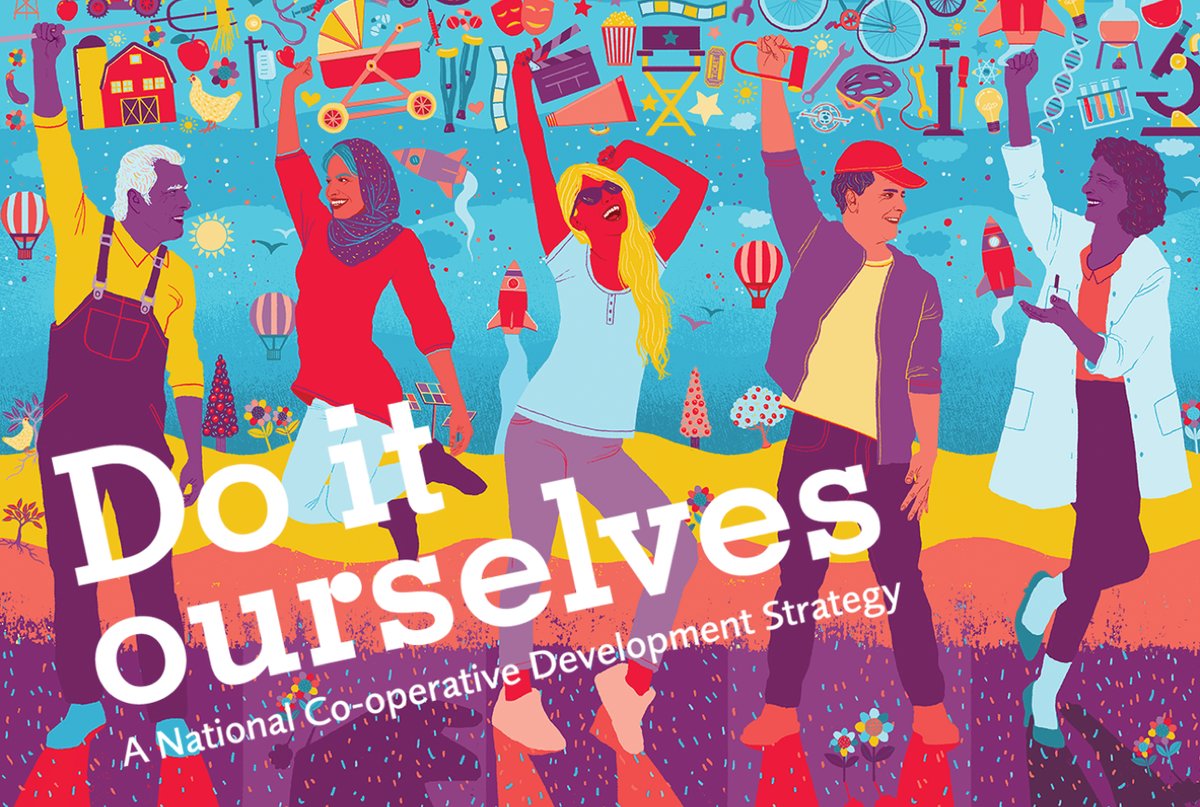With Brexit looming and continuing economic challenges facing the county, this year has seen something of a national debate about inequality and inclusive growth in Britain. We know that co-ops offer solutions to these big issues and, in a true spirit of co-operative self-help, we as a sector took matters into our own hands with the publication of Do It Ourselves, a new 20-year strategy to give more people a voice in the economy.
With input from over 500 co-ops it is a call to action for co-ops large and small. An ambitious piece of work, it focuses attention on those parts of the economy where co-operation is sorely needed – the gig economy, social care, tech workers, student housing, among others.

It also puts stress on the need for existing co-ops to be exemplars of co-operation. As such, we’ve worked closely with our members to create a series of high quality resources to help co-ops: for example, a thorough toolkit for directors, a new framework for reporting to members, and a guide to data regulations coming into effect next year. Our HR service has seen significant growth over the last twelve or so months too, with more worker co-ops subscribing to get HR advice and guidance.
And we’ve seen some effective policy-wins for the sector. Over the year we have revitalised the Cross Party Group in Scotland, where interest in worker ownership and community engagement is growing; we’ve seen the Labour leadership discussing policy ideas we have been developing, like co-ops for the self-employed and taxi co-ops; and the government has agreed to increase the audit requirement threshold for medium sized co-ops, helping to put co-ops on a level playing field with other businesses.
Looking ahead, there will be some significant challenges for co-ops in 2018. Brexit offers strategic opportunities for co-ops, not least around co-operation as a way to help small and medium sized businesses compete. And the continued focus on the future shape of the economy is something that co-ops, as people-led businesses, have a lot to offer.
But the ongoing economic uncertainty of leaving the European Union, and the impact it may have on core business costs, is likely to be a worry next year that will affect what many co-ops do. And more immediate challenges, like the introduction of new data regulations in the form GDPR, will also need to be negotiated to ensure co-ops are compliant in their use of members’ information.
At a sector-wide level, 2018 is set to be a year of experimentation in support of the Do It Ourselves strategy. We’ll be doing more to promote inspiring co-ops across the UK, with new films of amazing co-ops and campaigns around the co-operative economy and Co-operatives Fortnight.
And, because developments around platforms and technology are coming fast, it’s important for existing co-ops to keep on innovating and new ones to emerge that provide fairer ways of organising in a digital economy. We will be working with members and partners to support more student housing co-ops, helping to incubate new tech co-ops and scoping approaches to joint procurement for co-ops.
The world is moving fast at the moment. I’ve been pleased to see co-ops taking leadership on some big issues last year and it’s vital we continue to do so over the next year.